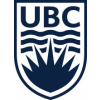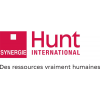Academic
Job Category
Faculty Non Bargaining
Job Title
Post-doctoral Fellow in Marine Host-Parasite Dynamics
Department
Research King Department of Zoology Faculty of Science (Kayla King)
Posting End Date
October 15, 2024
Note : Applications will be accepted until 11 : 59 PM on the Posting End Date.
Job End Date
Nov 17, 2026
The expected salary is $70,000 per year.
Please do not apply through Workday.
Applications must be submitted to Michelle McEwan by email at as stated in the job description below.
Post-doctoral Fellow in Marine Host-Parasite Dynamics
A Sentinels of Change Alliance postdoctoral fellowship
Project : Within the overarching Sentinels of Change Project , this focal project will explore the role of environmental variation (e.
g., temperature, pH, salinity) linked with global change in shaping the dynamics of parasite infection in intertidal marine invertebrates.
Invertebrates are integral members of food webs, sentinels of environmental health, and hosts to parasites reflecting the greater biodiversity in the ecosystem.
Field observations on the Salish Sea coast and manipulations will be done in collaboration with community partners, and extensions to lab and / or microcosm experiments are possible.
Biodiversity change in the Salish Sea is a major ecological concern. The need to understand these changes, and their causes, is a primary research objective so that knowledge can be mobilized to inform conservation and policy actions in the region.
The Sentinels of Change Alliance brings together Hakai Institute scientists, University of British Columbia scientists, and local communities to deepen our understanding of Salish Sea biodiversity change at an unprecedented scale and resolution.
The goals are to implement standard observation systems for biodiversity across a range of taxa, to conduct experiments to test hypotheses about the causes of diversity change, and to integrate knowledge from observation and experimental systems into a sustainable ongoing biodiversity observation system for the Salish Sea.
The Sentinels of Change Alliance project will train postdoctoral researchers and technicians to implement a series of globally recognized biodiversity monitoring programs (e.
g. Sentinels light traps, ARMS, MARINe Biodiversity monitoring and other systematic observation and experimental systems).
Project personnel will use state of the art data science and statistical approaches in the context of emerging frameworks for detecting and attributing biodiversity change.
Sentinel Postdoctoral researchers will be co-advised by UBC professors and Hakai scientists to develop projects that synthesize the information coming in from the monitoring program, as well as provide complementary theory development, mechanistic experiments and monitoring.
Postdoctoral responsibilities and Requirements :
Use state-of-the-art empirical practices and methods to test hypotheses about invertebrate-parasite ecological and / or evolutionary dynamics.
Apply expert knowledge of host-parasite interactions to hypothesis development and result interpretation
Collaborate with the Sentinels team of scientists, postdocs, field and data technicians
Publish results in peer-reviewed journals a timely fashion
Be curious and engaged with the project and the work, willing to learn and grow
Employ excellent communication skills with colleagues, collaborators, and mentors about all aspects of the projects (design, interpretation, challenges, solutions, timelines, and progress)
Preferred : experience leading field and experimental projects in the fields of parasitology, evolutionary ecology, and biodiversity research;
and academic background in those fields.
Project advising team :
Kayla King - UBC PI -
Christopher Harley - UBC PI -
Alyssa Gehman - Hakai PI -
Additional details : Equity and diversity are essential to research excellence. We welcome all applications, including those from members of groups that have been marginalized on any grounds enumerated under the B.
C. Human Rights Code, including sex, sexual orientation, gender identity or expression, racialization, disability, political belief, religion, marital or family status, age, and / or status as a First Nation, Metis, Inuit, or Indigenous person.
Candidates of any nationality are encouraged to apply.
The position is based at the Vancouver campus of the University of British Columbia, which lies on the traditional, ancestral, and unceded territory of the Musqueam people.
Hakai is an independent research organization based in British Columbia with many scientists studying the fish, invertebrates, microbes, and seaweeds of coastal ecosystems.
The postdoctoral fellow is expected to be able to travel within the Salish Sea Region to participate in experimental work, and accommodation at field stations will be provided.
The expected salary is $70, per year with benefits as per the UBC postdoctoral fellow benefits package. The offer is for two years, ideally starting fall 2024, with a performance review after one year.
To apply, please email Michelle McEwan () with the following :
- Curriculum Vitae
- Two reference letters
- Sample research publications
- A cover letter, which should address your motivation to excel in this project, and the particular skills and experience you can bring to the work.
Benefits
Plan Group Number : 020605Member ID : your 7-digit UBC employee ID number, Need crisis counselling?, Call the TELUS Health at 1-866-424-0770 to chat with a counsellor.
Disclaimer, The benefits information on this website is provided as a descriptive summary only. While the University has endeavored to accurately reflect its benefit programs, policies and plans, the information on this website does not create any contractual or other rights between the University and its faculty and staff members.
To the extent that there are any conflicts or discrepancies between the benefits information on this website and the benefit plan documents (including group insurance contracts and benefit booklets) or any applicable collective agreement, employment agreement, or UBC policy, the benefit plan documents and collective agreement, employment agreement, or UBC policy will govern in all cases.








